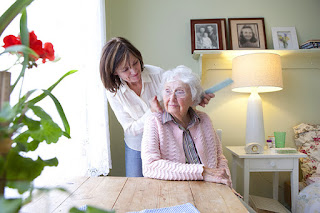How seniors can lower health risks

As we age, we become more vulnerable to chronic health issues, illnesses & diseases. Seniors' immune system is weaker and not always able to fight off infections as effectively as before. As many viruses circulate widely (cold & influenza), fall & winter is a critical times for older adults. Seniors who already suffer from any chronic health issues or disease and have decreased or no mobility, are also at very high risk of falls & injury, which can develop into further health & mobility complications. Keep in mind that any cold or flu infection can progress to pneumonia , a serious disease that can be deadly if not medically treated right away. Below are some helpful tips for seniors & loved ones: Ensure you are vaccinated With the fall and the flu season approaching, the health officials recommend being fully Covid-19 vaccinated, including the first booster shot. Seniors also need to be registered to receive a fall booster update...




